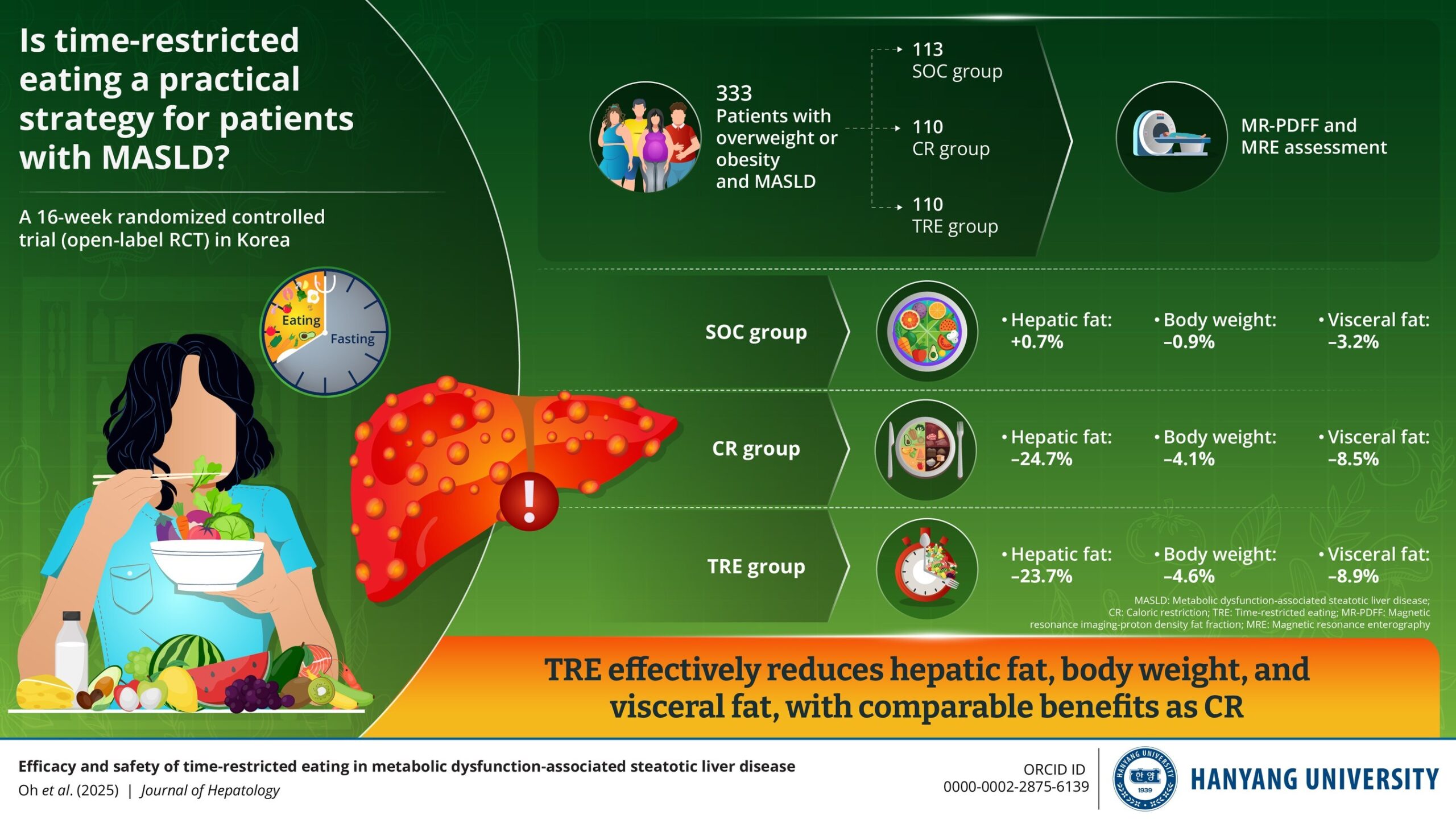A recent study from Hanyang University in Seoul, South Korea, has demonstrated that time-restricted eating (TRE) can significantly benefit patients suffering from metabolic dysfunction-associated steatotic liver disease (MASLD). Published online on June 19, 2025, in the Journal of Hepatology, the research highlights TRE’s potential as a practical dietary strategy for managing this increasingly prevalent condition.
MASLD is characterized by excess fat accumulation in the liver linked to various metabolic risk factors. Effective management typically involves addressing these underlying issues through a balanced diet and regular physical activity. The study, led by Professor Dae Won Jun, aimed to determine the most effective and sustainable dietary approach for individuals with MASLD.
To investigate this, researchers randomized overweight or obese patients with MASLD into three distinct groups: the standard of care (SOC) group, the calorie restriction (CR) group, and the TRE group. The main focus was on evaluating improvements in hepatic steatosis as well as changes in physical, physiological, and biochemical parameters.
Participants in both the TRE and CR groups exhibited notable reductions in hepatic steatosis, body weight, and visceral fat. Importantly, no serious adverse events were reported among participants in either the TRE or CR groups. The TRE group achieved these positive results by simply limiting their eating to specific hours while continuing their usual meals, without needing to adopt specific diets like the Mediterranean diet.
Dr. Joo Hyun Oh, a researcher involved in the study, commented on the findings: “Our study suggests that TRE may be more practical and easier to follow, especially for Asian populations.” The study also found that while both TRE and CR effectively improved liver fat and function, they did not show significant differences in blood glucose, cholesterol levels, or sleep duration.
As obesity continues to be a global concern, clear and evidence-based dietary guidance is essential. The insights gained from this research can help dispel misconceptions surrounding unproven dietary trends. With both TRE and CR demonstrating similar effectiveness in managing MASLD, individuals are encouraged to select an eating pattern that best fits their lifestyle.
Looking ahead, the findings from this study could inform the development of personalized dietary strategies tailored to individual routines, cultural backgrounds, and biological needs. Such approaches could contribute to sustainable weight management and a reduction in the prevalence of metabolic diseases.
For more details, refer to the original paper titled “Efficacy and safety of time-restricted eating in metabolic dysfunction-associated steatotic liver disease” in the Journal of Hepatology. The study’s DOI is 10.1016/j.jhep.2025.06.005.
For further inquiries, contact Geunyoung Moon at Hanyang University at +82-2-2220-0873 or via email at [email protected].







